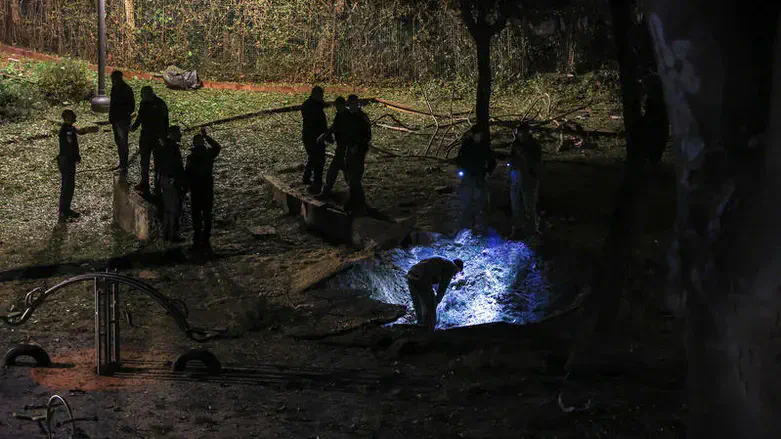
Israel's defense echelon on Saturday evening completed its initial investigation of the strike by a ballistic missile in central Israel.
The findings reveal that the IAF attempted to intercept the missile outside the atmosphere. Afterwards, two more intercepts were fired from the atmosphere's lower layer, in order to initiate an explosion in the air and detonate the missile's warhead. The defense echelon believes that it needed to launch an additional Arrow missile, despite the high cost.
Previously, the Iranians claimed that they had developed ballistic missiles with a maneuvering warhead capable of misleading Israel's air defense systems.
The IAF, together with the Defense Ministry, the aerial industry, and Rafael Advanced Defense Systems, are discussing the question of what exactly went wrong, and especially the question of whether Saturday morning's failed interceptions were an isolated incident or whether a new groundbreaking weapon was provided to the Houthis by Iran.
The investigation also revealed that at 3:34 a.m. Saturday morning, the Houthis in Yemen - 2,000 kilometers away from Israel - launched a ballistic missile, but the sirens sounded only at 3:44 a.m., after the missile landed.
The IDF expects that the rate at which the missiles and UAVs are launched will increase.
On Saturday afternoon, an additional UAV was launched at Israel and intercepted near the Gaza border; it is believed that the UAV was launched from Yemen. The interception was recorded in a dramatic video clip, which shows a fighter helicopter opening fire at the UAV, which then explodes midair.
An additional Houthi UAV was intercepted off the coast of Tel Aviv on Thursday, and on Monday, both a missile and a UAV launched from Yemen were intercepted. According to the IDF, since the start of the war, the Houthis have launched over 200 missiles and 170 UAVs towards Israel. Most of these were intercepted or did not enter Israeli territory.

